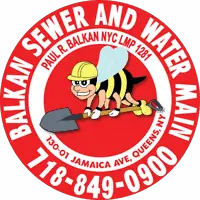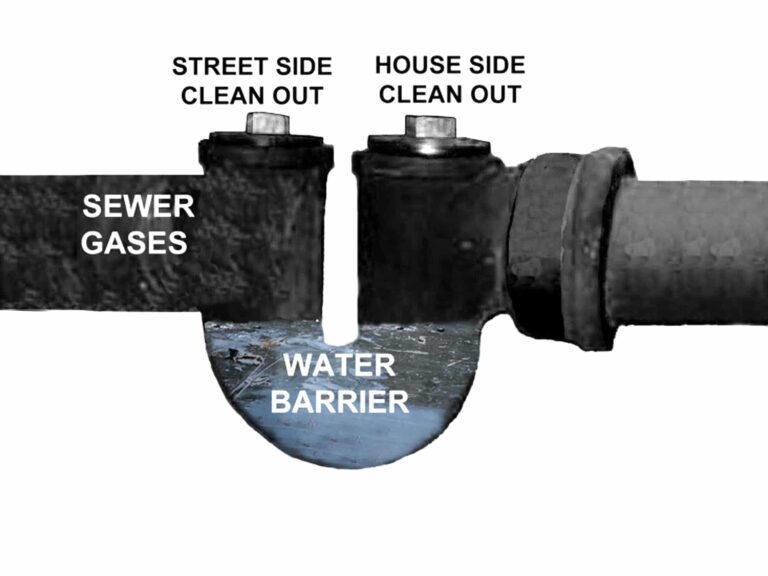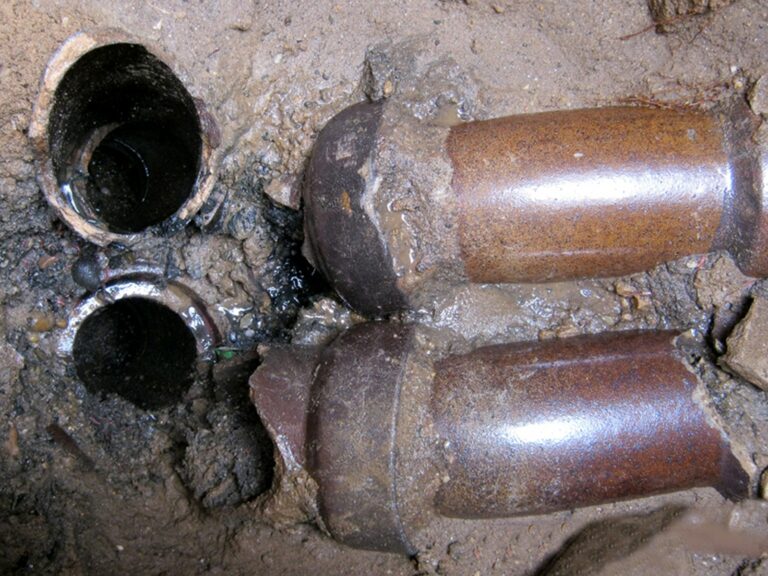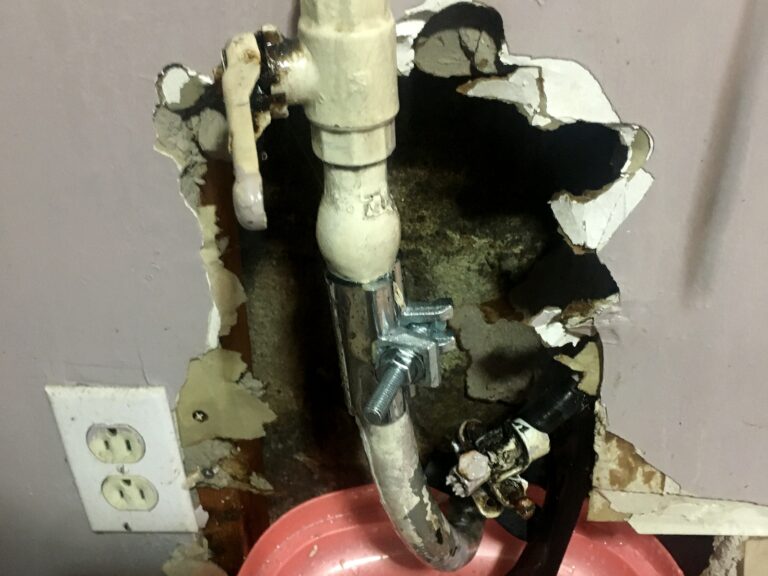If you are a homeowner, you probably understand that it is a significant investment. Along with the investment, comes various responsibilities. One of which is maintaining the infrastructure of your property. While most homeowners are aware of the importance of regular home inspections, one often overlooked aspect is the sewer system. You might ask yourself, what is a sewer scope inspection?
Over the years sewer scope inspections (also known as sewer camera inspections) have emerged as a crucial tool in helping with proper property maintenance. A sewer inspection helps homeowners avoid costly and disruptive plumbing issues and gives a clear indication of the working condition of their house sewer and drain system.
It is generally advisable and considered a wise investment, to have a sewer inspection performed before purchasing a home or investment property. In this comprehensive 4-point guide, we will delve into the sewer inspection process, the tools required, the expertise needed, and the numerous benefits that come with this relatively inexpensive and essential service.
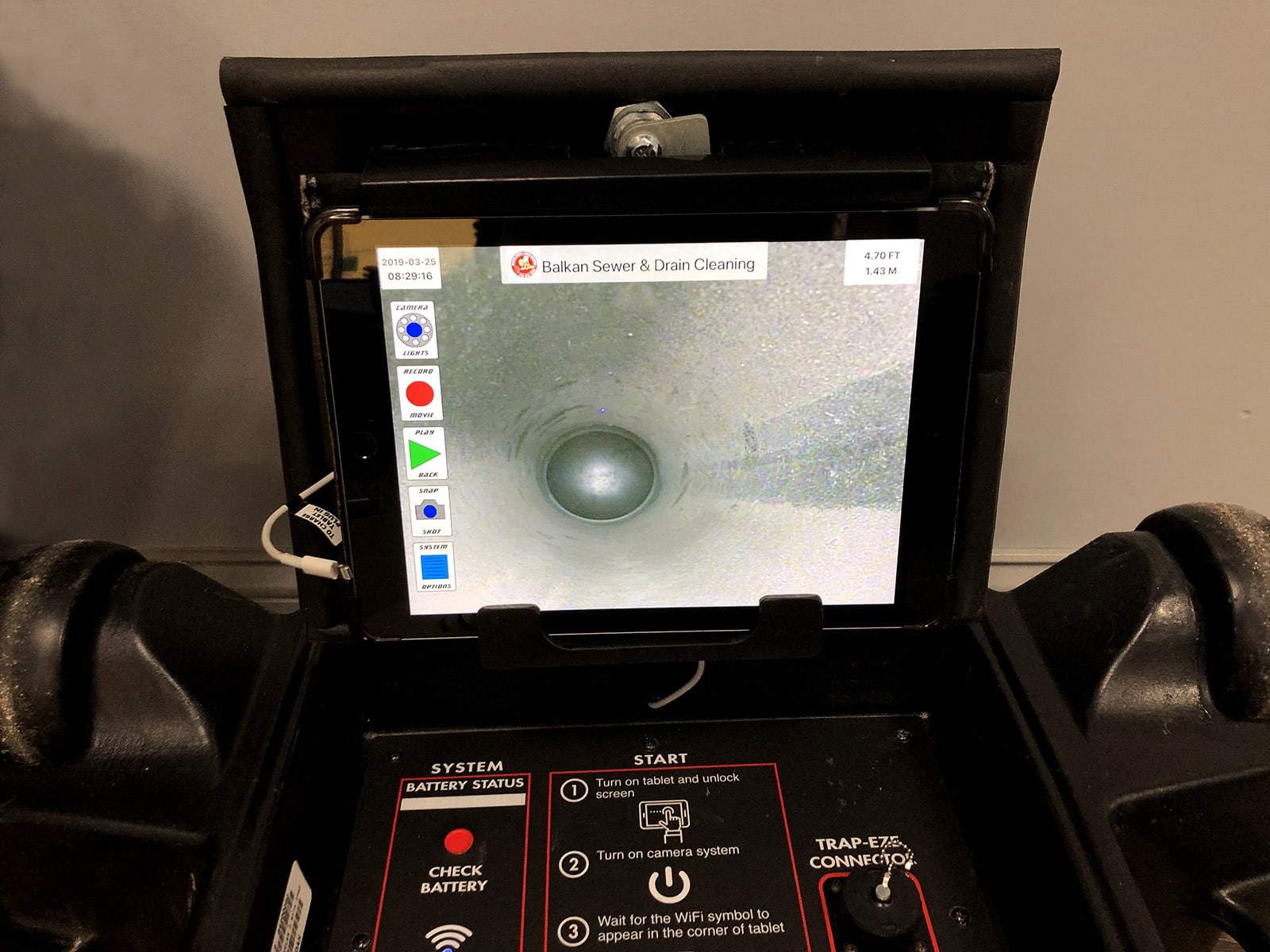
I. The 8-Point Sewer Scope Inspection Process
A sewer scope (camera) inspection is a procedure used to assess the condition of a property’s underground sewer lines, without any threat of damaging the system itself. These inspections provide critical and crystal clear insight into the state and condition of a drain and home sewer system in a home. The scope inspection process helps existing homeowners, and prospective buyers alike, make informed decisions. Here’s a step-by-step breakdown of the sewer line scope inspection process:
- Preparation: Before starting the inspection, the technician will gather essential information, such as the property’s layout, plumbing history, and any known issues. This information helps in planning the inspection, and the technician that performs the actual inspection.
- Access Point Identification: The technician will locate an appropriate access point to the sewer line. This is usually an existing clean-out or main house sewer trap. Either a main trap or clean-out provides a direct entry point into the sewer system without the need for excavation.
- Camera Setup: The inspection camera, typically mounted on a flexible rod, is inserted into the clean-out. The camera is equipped with powerful LED lights to illuminate the pipes and a high-resolution (HD) video camera to capture images of the interior of the piping system.
- Exploration: As the camera is advanced through the sewer line, the technician observes the live feed on a monitor. The tech will carefully navigate the camera through the pipeline, assessing the condition of the pipes at critical intervals. They will likewise identify any blockages or damage, and record information of note.
- Documentation: Throughout the inspection, the technician documents their findings, including the location and severity of any issues. This documentation will be provided to the homeowner as part of the inspection report. Modern sewer camera inspections not only provide crystal clear images, but they also provide exact location and depth as they pass through the drain system.
- Analysis: After completing the inspection, the technician reviews the recorded footage and data to assess the overall condition of the sewer line. They will identify any potential problems, such as tree root intrusion, cracks, corrosion, pipe separations, or blockages.
- Report: A detailed report is generated, summarizing the inspection’s findings. The report includes the condition of the sewer line, recommendations for repairs or maintenance, and often includes video footage for visual reference. In many cases, the technician performing the camera inspection will narrate their finding as they perform the inspection.
- Consultation: The actual drain technician or an in-house expert will speak with the homeowner to discuss the inspection results and answer any questions. They may also provide advice on necessary repairs or maintenance.
II. Tools Needed for Sewer Scope Inspections
Performing a thorough sewer inspection requires specialized tools and equipment designed for navigating and assessing the condition of underground sewer lines. Here are the essential tools needed:
- Sewer Inspection Camera: This is the heart of the inspection process. It consists of a high-resolution (HD) camera mounted on a flexible rod, which can be remotely controlled and maneuvered through the sewer line. Cameras equipped LED lights provide illumination that is vital to ensure clear visuals of the interior of your drain lines.
- Monitor and Recording Equipment: To view and record the live footage from the inspection camera, technicians use a monitor with playback capabilities. Recording the inspection allows for documentation and review of findings.
- Locator: Sewer line locators help technicians determine the depth and location of the camera within the pipeline. Knowing the pipe’s depth and actual location is crucial for both mapping the sewer, system and identifying any specific trouble spots. The distance is frequently embedded in the video itself.
- Clean-out Access Tools: Access to the sewer line is typically gained through a clean-out, which may require specific tools to remove the clean-out cap and access the pipeline. If a sewer clean-out plugis damaged when removed, it is easily replaced at very little cost.
- Protective Gear: Technicians should wear appropriate personal protective equipment (PPE) such as gloves, goggles, and coveralls to ensure safety and hygiene during the inspection. In some cases, a drop cloth may be recommended.
- Sewer Inspection Software: Specialized software may be used to document and analyze inspection findings, such as a laptop. Sharable videos and laptops are very helpful in generating detailed reports and recommendations for homeowners that are easily understandable.
III. Expertise Needed for Sewer Scope Inspections
Performing a sewer scope inspection requires a high level of expertise and training. Drain technicians must possess the knowledge and skills to navigate and understand the sewer system they are scoping. Likewise, they need to know how to identify issues and provide accurate assessments. Here’s an overview of the expertise needed for sewer inspections using an HD sewer camera:
- Plumbing Knowledge: Technicians must have a deep understanding of plumbing systems, including the various types of pipes used, common issues that arise, and the methods for repairing or replacing damaged pipes.
- Camera Operation Skills: Obviously, knowing how to operate the inspection camera is the most critical aspect of the inspection process. The technician needs to be skilled in maneuvering the camera through tight spaces, bends in the pipe, and ensuring that the camera captures clear visuals. They must also troubleshoot any technical issues that may arise for the inspection to be considered a success.
- Problem Recognition: An experienced technician can quickly identify issues such as cracks, corrosion, blockages, dips in the pipe (backpitched pipes), and tree root intrusion during the inspection. A truly experienced drain technician can also differentiate between minor and major problems. This is the difference between a homeowner performing a costly repair, or just needing a routine cleaning.
- Sewer System Mapping: Understanding the layout of the sewer system and accurately mapping its path is crucial for assessing the extent of any issues and determining the most efficient solutions. This becomes even more vital if a sewer dig is required to correct a problem.
- Report Writing: Technicians should be proficient in preparing comprehensive inspection reports that clearly communicate their findings to homeowners or potential buyers. An inspection report should always include visual documentation and recommendations if repairs or maintenance are needed.
- Regulatory Knowledge: Any licensed plumbing firm should stay informed about local plumbing codes and regulations. That is essential for ensuring that inspection findings align with legal plumbing code requirements and guidelines. For instance, two properties sharing the same house sewer is generally not approved in NYC and other jurisdictions as well.
IV. Benefits of Sewer Scope Inspections
At this point, it should be obvious that home sewer inspections offer numerous benefits to homeowners, property buyers, and even sellers. What follows are 7 of the key advantages of performing a sewer scope inspection:
- Early Detection of Problems: Sewer scope inspections can uncover issues in their early stages, allowing homeowners to address them before they escalate into more significant and costly problems. Home and property owners that have a proactive approach typically save both money and stress.
- An Informed Decision-Making Process: For any potential home buyers a sewer and drain inspection provides valuable information about the subject property’s sewer and drain system. Armed with this knowledge, buyers can negotiate repairs or replacements with the seller or make an informed decision about whether to proceed with the purchase.
- Preventive Maintenance: Regular sewer inspections utilizing a sewer camera can be part of a proactive maintenance plan, helping homeowners maintain their sewer systems in optimal condition. Preventive maintenance is always key in extending the lifespan of any type of pipes or plumbing and also reducing the likelihood of emergencies.
- Cost Savings: Identifying and addressing sewer line issues early on can save homeowners significant money in the long run. It is often more cost-effective to repair or replace a section of a sewer line than to deal with the consequences of a major sewer line failure.
- Environmental Impact: Addressing issues such as leaks or blockages promptly can help prevent sewage spills and contamination. Early detection and repair reduce the environmental impact of plumbing problems and likewise, prevent potential property damage.
- Peace of Mind: Knowing the condition of your sewer system can provide peace of mind. Homeowners can rest assured that their property’s plumbing is in good working order, reducing anxiety about unexpected sewer-related problems. Sewer repair and replacement work is generally a costly affair and one of the more expensive bills a property will endure.
- Home Insurance Compliance: Some insurance companies require sewer scope inspections as part of the underwriting process. Making sure that your sewer system is in good condition can help maintain or lower your insurance premiums, and reduce or eliminate future claims.
A Brief Conclusion About Sewer Scope Inspections
Sewer scope inspections are a valuable and inexpensive tool for homeowners and property buyers seeking to understand the condition of their sewer systems. An experienced drain technician will utilize a well-defined inspection process and specialized tools. Likewise, a trained drain technician doing an inspection will provide a host of benefits. Fortunately, these sewer inspections are becoming increasingly common, and highly advisable in both property maintenance and real estate transactions as well.
Investing in a Home Sewer Inspection is a Wise Investment in Most Cases
Home and property owners who invest in a sewer scope inspection can protect their properties, make informed hiring decisions, and potentially save money in the long run. Once again it must be stated that It’s a small investment, and one that can have a significant impact on the health and longevity of a property’s plumbing infrastructure.
